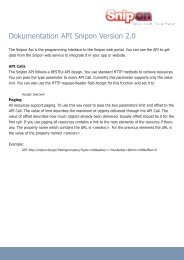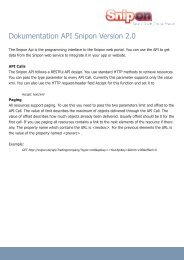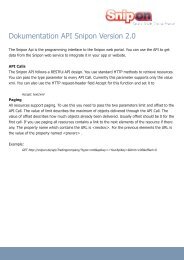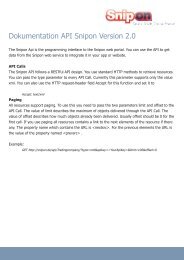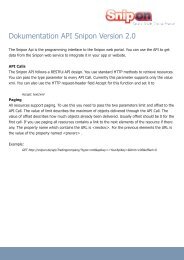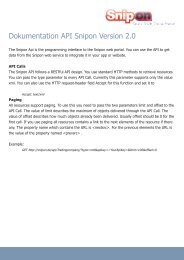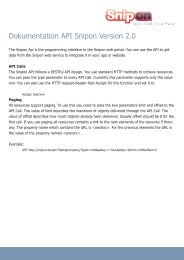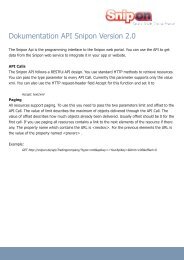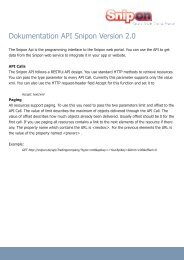test_pdf.pdf
You also want an ePaper? Increase the reach of your titles
YUMPU automatically turns print PDFs into web optimized ePapers that Google loves.
AUL C. W<br />
PAUL<br />
AUL<br />
C. WARNKE<br />
Ambassador Paul C. Warnke was a leading and<br />
tireless proponent of arms control. A member of<br />
the Arms Control Association Board of Directors<br />
for nearly two decades, Warnke had a distinguished career<br />
of promoting arms control from within and outside<br />
government. Most notably, he served as the director of<br />
the Arms Control and Disarmament Agency (ACDA) under<br />
President Jimmy Carter. During this period, he also<br />
led the effort to negotiate binding limits on U.S. and Soviet<br />
nuclear forces at the Strategic Arms Limitation Talks<br />
(SALT). Although Warnke resigned from the government<br />
in 1978 under pressure from those who thought he was<br />
not taking a tough enough stance with Moscow, the U.S.-<br />
Soviet arms talks eventually produced SALT II in 1979.<br />
However, SALT II never entered into force because President<br />
Carter asked the Senate to halt its consideration of<br />
the treaty following the Soviet invasion of Afghanistan.<br />
Before President Carter’s 1976 nomination of Warnke to lead ACDA, he had already riled<br />
defense conservatives for criticizing their view that the United States needed to match or<br />
surpass the Soviet Union weapon-for-weapon. He set out his ideas in a renowned and<br />
controversial 1975 Foreign Policy article, “Apes on a Treadmill.” Warnke wrote, “The contention<br />
that, whatever the practical military utility, we will incur political disadvantages<br />
unless we maintain a lead across the spectrum of strategic and conventional forces, is both<br />
a recipe for endless escalation of defense costs and a self-fulfilling prophesy.” Instead, he<br />
recommended that the United States show restraint in its weapons developments on the<br />
premise that the Soviet Union would follow suit. “The Soviets are far more apt to emulate<br />
than to capitulate,” Warnke argued.<br />
Warnke never shied away from saying what he felt was right. As Assistant Secretary of<br />
Defense for International Affairs during the Lyndon Johnson administration, Warnke spoke<br />
out against U.S. involvement in Vietnam. He was one of the highest-level government officials<br />
to give public voice to his criticisms of the war.<br />
After leaving the Carter administration, Warnke returned to the private sector to practice<br />
law. Yet he remained a fervent advocate of arms control measures to ease tensions with the<br />
Soviet Union and to protect U.S. security. In his later years, he served on President Bill<br />
Clinton’s Presidential Advisory Board on Arms Proliferation Policy and strongly promoted<br />
a comprehensive nuclear <strong>test</strong> ban.<br />
Paul Warnke died on October 31, 2001. In June 2003 the Warnke family generously donated<br />
his papers to Georgetown University’s Lauinger Library, where they will be housed in the<br />
Library’s Special Collections. In a ceremony marking the gift, Ambassador Robert Gallucci,<br />
Dean of Georgetown University’s Edmund A. Walsh School of Foreign Service, said, “We<br />
are so fortunate to have Paul Warnke’s papers at Georgetown University. His negotiation<br />
of the SALT II Treaty and his intellectual contributions in the field of arms control made a<br />
very dangerous period of the Cold War safer for all of us.”<br />
—Arms Control Association<br />
3<br />
3



